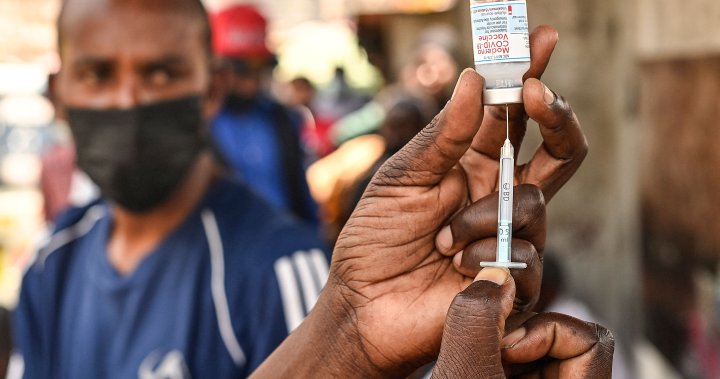
COVID-19 vaccine inequity now top of mind at United Nations meeting
Global News
Countries slated to give their signature annual speeches on Thursday include South Africa, Botswana, Angola, Burkina Faso and Libya.
The inequity of COVID-19 vaccine distribution will come into sharper focus Thursday as many of the African countries whose populations have little to no access to the life-saving shots step to the podium to speak at the U.N.’s annual meeting of world leaders.
Already, the struggle to contain the coronavirus pandemic has featured prominently in leaders’ speeches — many of them delivered remotely exactly because of the virus. Country after country acknowledged the wide disparity in accessing the vaccine, painting a picture so bleak that a solution has at times seemed impossibly out of reach.
“Some countries have vaccinated their populations, and are on the path to recovery. For others, the lack of vaccines and weak health systems pose a serious problem,” Norway’s Prime Minister, Erna Solberg, said in a prerecorded speech Wednesday. “In Africa, fewer than one in 20 people are fully vaccinated. In Europe, one in two are fully vaccinated. This inequity is clearly unfair.”
Countries slated to give their signature annual speeches on Thursday include South Africa, Botswana, Angola, Burkina Faso and Libya.
Also among them will be Zimbabwe, where the economic ravages of the pandemic have forced some families to abandon the long-held tradition of taking care of their older people. And Uganda, where a surge in virus cases have made scarce hospital beds even more expensive, leading to concerns over alleged exploitation of patients by private hospitals.
On Wednesday, during a global vaccination summit convened virtually on the sidelines of the General Assembly, President Joe Biden announced that the United States would double its purchase of Pfizer’s COVID-19 shots to share with the world to one billion doses, with the goal of vaccinating 70 per cent of the global population within the next year.
The move comes as world leaders, aid groups and global health organizations have growing increasingly vocal about the slow pace of global vaccinations and the inequity of access to shots between residents of wealthier and poorer nations.
The World Health Organization says only 15 per cent of promised donations of vaccines — from rich countries that have access to large quantities of them — have been delivered. The U.N. health agency has said it wants countries to fulfill their dose-sharing pledges “immediately” and make shots available for programs that benefit poor countries and Africa in particular.











